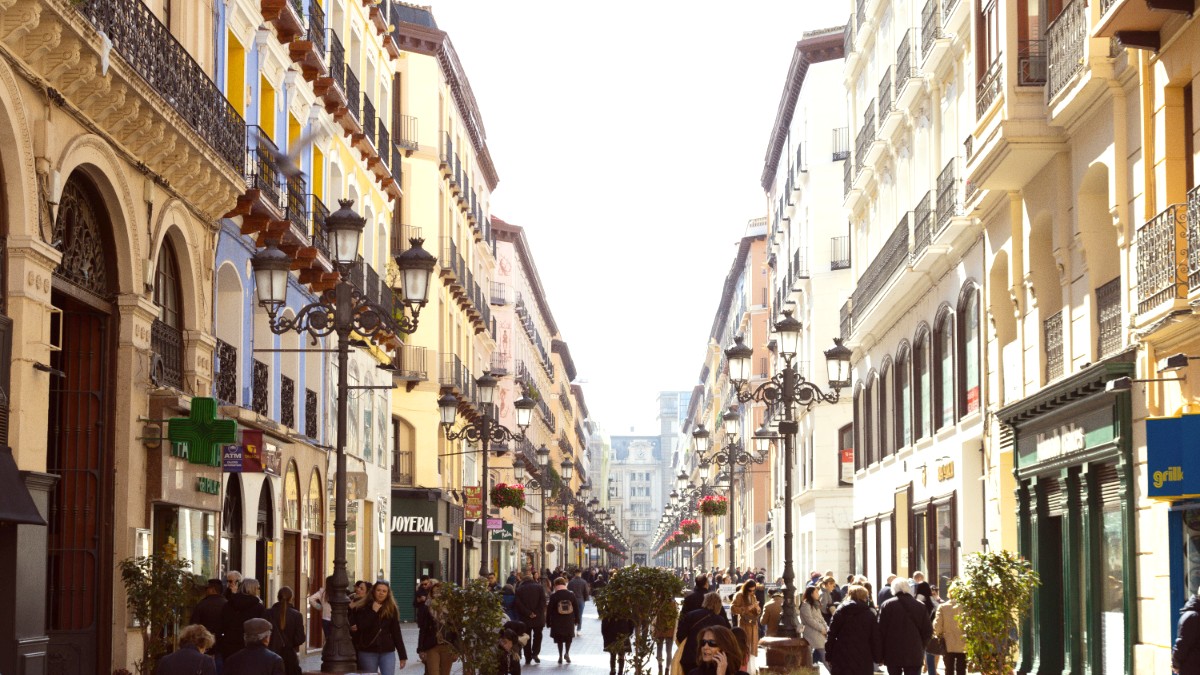
Aragon Basque Country And Navarra, Spain
Summer (June - August): These months bring hot and dry conditions. Average daytime temperatures range from 28°C to 32°C (82°F to 90°F). Temperatures frequently exceed 35°C (95°F) in July and August. Nights remain warm. Rainfall is minimal, and humidity stays low.
Autumn (September - November): Expect mild to cool weather. Temperatures average 15°C to 25°C (59°F to 77°F) in September, dropping to 8°C to 15°C (46°F to 59°F) by November. Moderate rainfall occurs, with October and November often seeing more precipitation.
Optimal timing can enhance your experience of the city.
June - August
Lively atmosphere.
Very hot temperatures create uncomfortable sightseeing. Accommodation and flight prices are higher. Popular attractions see larger crowds.
April - May & September - October
Pleasant temperatures for walking and sightseeing. Fewer crowds than peak summer. More moderate prices. May and September are often ideal months.
Occasional rain showers. The "cierzo" wind brings a noticeable chill.
November - March
Lowest prices for flights and accommodation. Very few crowds. Experience local life without tourist hustle.
Cold temperatures. Frequent fog in winter. Shorter daylight hours. Some attractions might have reduced operating hours.
Plan these for April-May and September-October. The mild weather makes walking around the city pleasant.
Late spring or early autumn offer comfortable temperatures for outdoor pursuits like cycling along the Ebro.
Zaragoza's largest festival. Consider attending if you like cultural experiences.
Be aware that this period is exceptionally busy.
Prices will be at their highest during major festivals.
Book well in advance for accommodation and transportation during festival times.
Many cultural events take place throughout the year; check local listings.
Spain is part of the Schengen Area, which shapes entry rules for many nationalities.
Citizens from many countries, including the United States, Canada, the United Kingdom, Australia, New Zealand, Japan, and South Korea, do not need a Schengen visa for stays up to 90 days for tourism or business.
Starting in mid-2025, visa-exempt non-EU nationals will need to apply for an ETIAS authorization before travelling to the Schengen Area. This is a pre-travel authorization, not a visa.
Compare various plans to meet your travel insurance needs:
The Euro (€) is Spain's currency. Consider budgeting for various aspects of your trip.
The official currency throughout Spain, including Zaragoza, is the Euro (€).
ATMs (cajeros automáticos) are widely available. Look for ATMs associated with major banks (e.g., BBVA, CaixaBank, Santander) to avoid excessive fees. Most establishments accept credit and debit cards, with Visa and Mastercard being the most accepted. Inform your bank of your travel plans before you leave.
Daily costs: €40-€70. This covers a hostel dorm or basic guesthouse, supermarket groceries, budget tapas, public transport, and free attractions.
Walk extensively. Seek "Menu del Día" for lunch.
Limit taxi usage and avoid daily fine dining.
Daily costs: €80-€150. A 3-star hotel or comfortable apartment, mid-range restaurants, several tapas outings, and multiple paid attractions.
Enjoy local restaurants. Use public transport and occasional taxis.
Avoid excessive shopping or exclusive tours daily.
Daily costs: €200+. Expect a 4-5 star hotel, fine dining, private transfers, and exclusive experiences.
Indulge in top hotels and culinary experiences.
Budget constraints are generally minimal for this style.
| Category | Item | Price Range (€) |
|---|---|---|
| Accommodation | Hostel dorm bed | 20-35 |
| Mid-range hotel | 70-120 | |
| Meals | Menu del Día (lunch) | 12-18 |
| Dinner at mid-range restaurant | 20-40 per person | |
| Transportation | Single bus/tram ticket | 1.50 |
| Taxi from airport to city center | 25-30 (fixed rate) | |
| Attractions | Aljafería Palace entry | 5-7 |
| La Seo Cathedral entry | 5-7 |
Zaragoza is generally safe.
Ensure your routine vaccinations (MMR, DTP, Chickenpox, Polio, Flu) are up to date. No specific vaccinations are required for entry to Spain from most countries.
Consult your doctor or a travel clinic well in advance for personalized recommendations based on your health history.
Sunburn/Heatstroke (especially in summer: use High-SPF sunscreen, wear a hat, stay hydrated, seek shade). Dehydration (drink water). Traveler's Diarrhea (practice hand hygiene, eat at reputable places).
Emergency Number: 112
This number is for all emergencies, including police, fire, and ambulance services, and operates throughout Spain.
EU citizens benefit from public healthcare with their European Health Insurance Card (EHIC). Non-EU citizens will need travel insurance. Hospitals and clinics are available and offer high-quality care.
Tap water is safe to drink. Spain maintains high food hygiene standards.
Travel insurance is highly recommended for all travelers.
Look for coverage for medical emergencies, emergency evacuation, trip cancellation or interruption, and baggage loss.
Providers like Insubuy and SafetyWing (especially for digital nomads) offer various plans. Secure comprehensive Travel insurance before your trip.
Zaragoza is generally a safe city. However, be aware of common urban risks.
Be informed about potential seasonal hazards.
Common in summer. Stay hydrated and avoid prolonged sun exposure during the hottest parts of the day.
Rare in Zaragoza. The Ebro River can experience high water levels during heavy rainfall, notably upstream.
The risk of wildfires rises in hot, dry summers in surrounding natural areas, posing less of a direct threat within the city.